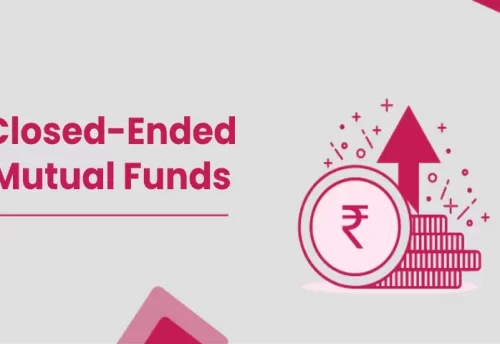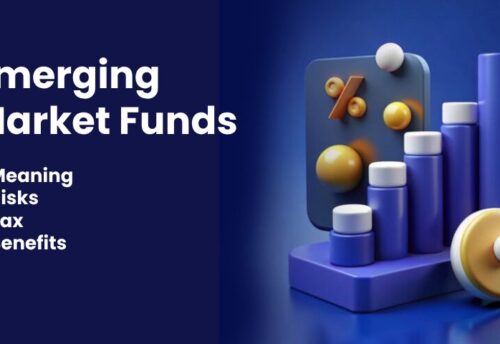
- 02/08/2025
- MyFinanceGyan
- 850 Views
- 3 Likes
- Mutual Fund
Compounding in Mutual Funds: Your Gateway to Long-Term Wealth
Investing may seem full of numbers and strategies, but one simple concept can transform your financial future — compounding. Often called the “eighth wonder of the world,” compounding is a powerful force that helps small investments grow into a large corpus over time.
If you’re planning to build wealth through mutual fund investments, understanding how compounding works is essential.
What is Compounding in Mutual Funds?
Compounding is the process where your earnings — interest, dividends, or capital gains — are reinvested to generate more earnings over time.
In mutual funds, compounding happens automatically when the returns generated by your fund are reinvested back into the scheme. This allows you to earn returns on both your original investment and the accumulated returns, leading to exponential growth.
In short: Compounding helps your money grow faster by earning returns on previous returns.
How Does Compounding Work?
Let’s take an example:
You invest ₹1,00,000 in a mutual fund earning 12% annual returns. If you withdraw the returns every year, you earn ₹12,000 annually.
But if you let the earnings stay invested, here’s how your investment grows:
Year Value After Compounding:
- 1 ₹1,12,000
- 2 ₹1,25,440
- 3 ₹1,40,493
- 10 ₹3,10,584
That’s the magic of compounding — your wealth grows faster when you stay invested.
Why is Compounding So Powerful in Mutual Funds?
- Time Multiplies Growth: The longer your money stays invested, the more it grows — not in a straight line, but exponentially.
- Auto-Reinvestment: Returns are reinvested automatically in growth plans.
- No Extra Effort: You don’t have to manually reinvest your returns.
- Works for All Mutual Fund Types: Whether you invest in equity, debt, or hybrid funds — compounding works everywhere.
Example: How Compounding Multiplies Wealth
Let’s say you invest ₹5,000 per month in a mutual fund earning 12% annually:
Duration
- 10 years ₹11.61 lakhs
- 20 years ₹49.95 lakhs
- 30 years ₹1.76 crores
You invest ₹18 lakhs in 30 years, but earn over ₹1.5 crore purely through compounding!
SIP + Compounding = Wealth Creation:
A Systematic Investment Plan (SIP) is a monthly investment in mutual funds. SIP is the best way to benefit from compounding:
- You invest regularly
- Each SIP amount starts compounding separately
- Over time, your total wealth multiplies
Example:
₹10,000/month for 25 years @12% returns = ₹1.7 crore
Your investment = ₹30 lakhs; Wealth created = ₹1.4 crore
Factors That Affect Compounding:
- Time– The longer you stay invested, the more your money grows
- Rate of Return– Higher returns boost compounding (but with higher risk)
- Investment Frequency– Monthly SIPs allow more compounding cycles
- Consistency– Skipping SIPs or redeeming early breaks the compounding chain
- Fund Option Chosen– Choose the Growth Option to reinvest earnings
Growth Option vs IDCW (Dividend Option):
For wealth building, always go with the Growth Option.
How Compounding Works in Different Fund Types:
- Equity Funds: High return potential → Best for long-term compounding
- Debt Funds: Lower risk, modest compounding → Good for medium-term goals
- Hybrid Funds: Balanced compounding → Ideal for conservative investors
Regardless of the fund type, compounding helps your money grow if you stay invested.
How to Maximize the Power of Compounding?
- Start Early– The sooner you begin, the more your money multiplies
- Be Consistent– Don’t skip SIPs or withdraw early
- Stay Invested– Avoid panic during market corrections
- Use Growth Option– Reinvestment fuels compounding
- Top Up SIP– Increase your SIP amount over time
Compounding vs Simple Interest:
With compounding, the longer you stay invested, the more your wealth accelerates.
Real-Life Example: The Early Investor Advantage
- Anjali starts investing ₹5,000/month at age 25
- Rohan starts the same at age 35
- Both invest till 55 at 12% returns
Name Total Corpus @ 55
Anjali ₹1.76 crore
Rohan ₹56.5 lakh
Just a 10-year head start helped Anjali earn over 3 times more than Rohan!
Conclusion:
Compounding is the ultimate secret to wealth creation in mutual funds. It’s not about how much you invest — it’s about how long you stay invested and how consistent you are.
- Start early
- Stay invested
- Choose Growth Option
- Keep SIPs consistent
- Let time and compounding do their job
If financial freedom is your goal, compounding is your strongest ally.
FAQs on Compounding in Mutual Funds:
Yes, every SIP investment compounds separately over time.
Growth Option, as it reinvests returns for compounding.
At least 5–10 years, ideally longer.
Yes, using the formula A = P(1 + r/n)^nt or an SIP calculator.
Yes. Whether it’s equity, debt, or hybrid, all funds benefit from compounding — especially when invested under the Growth Option.



